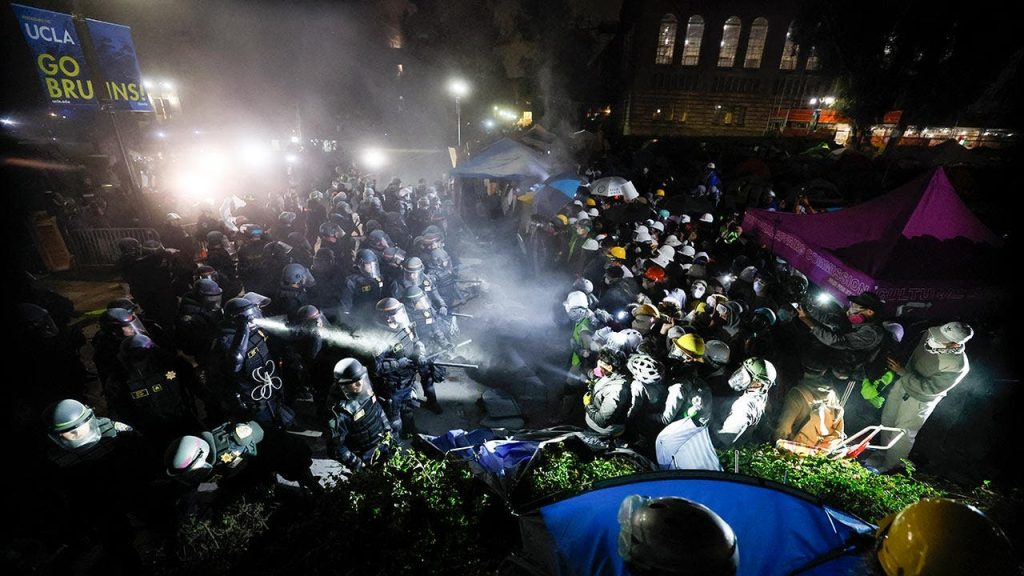After classes were canceled at UCLA due to safety concerns stemming from anti-Israel protests, the university was forced to move courses remotely through the end of the week. This decision was made in response to an ongoing demonstration where protesters had erected a fence to keep out law enforcement officers. Police were given permission to restore order, leading to the evacuation of Dickson Plaza (Royce Quad) and urging students to avoid the area. Geffen Academy, Lab School, and Early Care and Education remained closed on Thursday, with additional guidance to be shared on Friday.
The safety statement encouraged employees to work remotely and for events and research activities to either go virtual or be rescheduled. UCLA Extension classes were to continue as scheduled, except for those held on campus which would be moved to other locations or online. Anti-Israel agitators on campus were calling for divestment from Israel and an end to affiliations with entities benefitting from the conflict with Hamas in Gaza. There was a strong law enforcement presence throughout the campus to promote safety and essential staff from Student Affairs remained to support students.
The decision to move courses remotely came amid continued antisemitic protests on the UCLA campus and the clearing of barricades and detention of agitators by law enforcement. Classes were initially canceled on Wednesday, and the university was following Academic Senate guidance on instruction, which mandated a shift to remote learning. The university urged employees to consult with supervisors on working remotely, while the hospital and health system, clinical operations, and housing and hospitality facilities remained open.
As the protests continued, the university took steps to maintain safety and order on campus. The situation escalated to a point where police intervention was necessary to evacuate the area and ensure the wellbeing of all involved. The statement was signed by Sean Devine, UCLA’s senior Emergency Management Specialist, signaling the seriousness of the situation and the need to prioritize safety. Campus operations were limited, with the campus remaining open but students and employees being urged to avoid certain areas and follow recommended safety guidelines.
Overall, the situation at UCLA highlighted the ongoing tensions surrounding the conflict in the Middle East and the impact it can have on college campuses. The decision to move courses remotely was made in response to safety concerns and ongoing anti-Israel protests, with the university prioritizing the wellbeing of its students and staff. By taking proactive measures and issuing safety guidelines, UCLA aimed to maintain order and ensure the safety of all individuals on campus.













